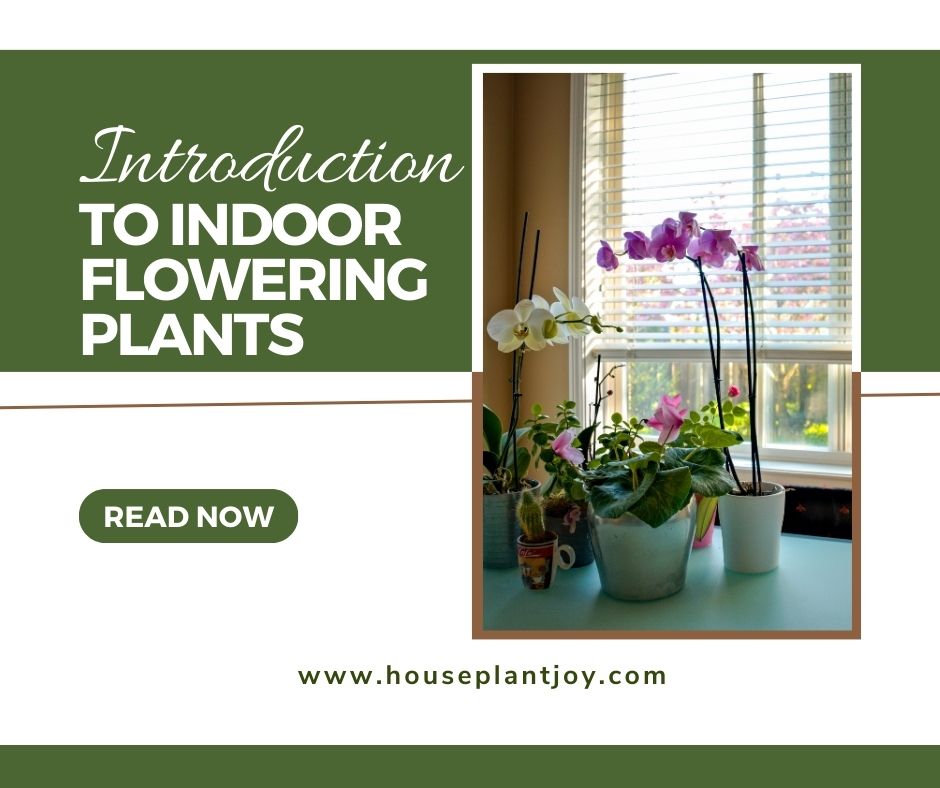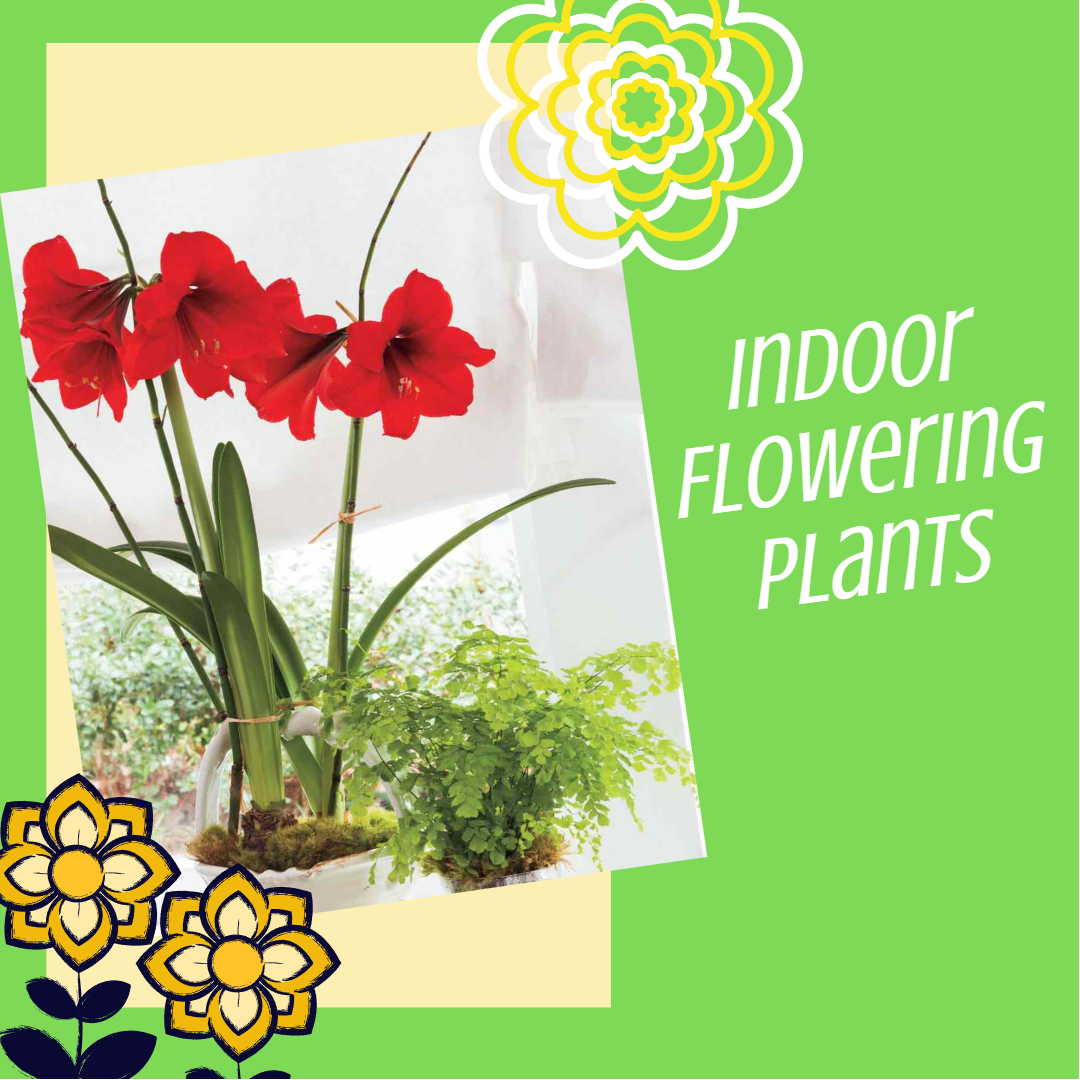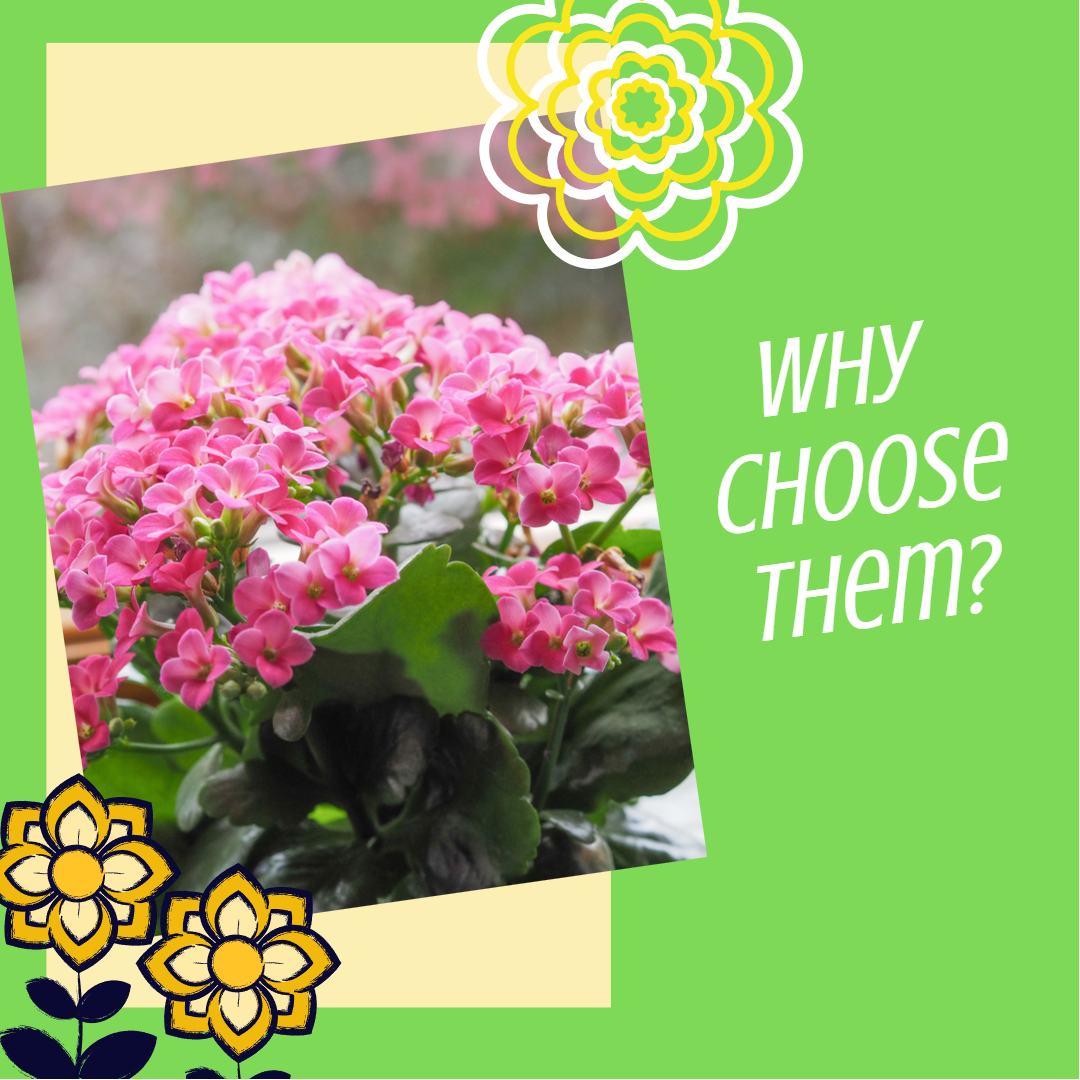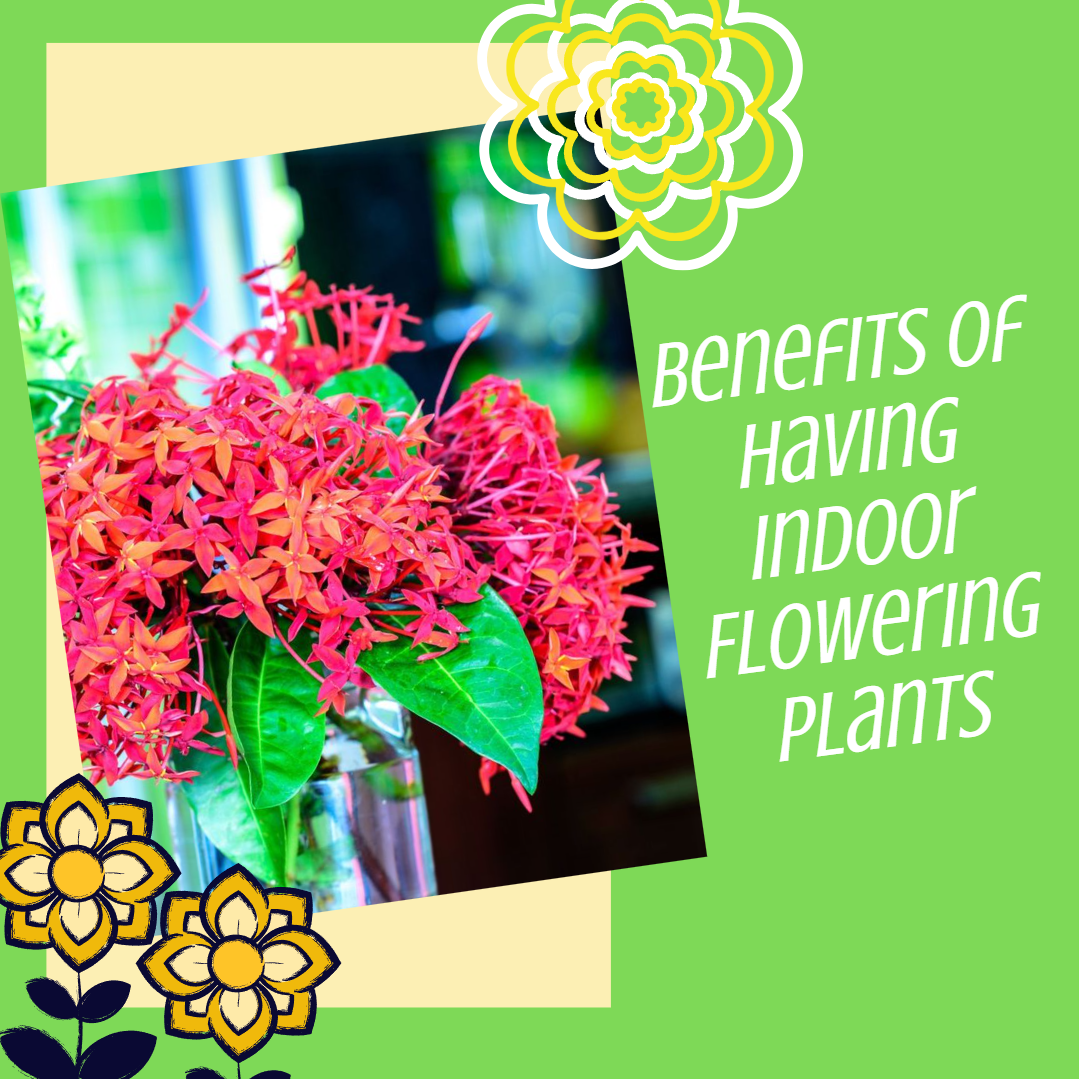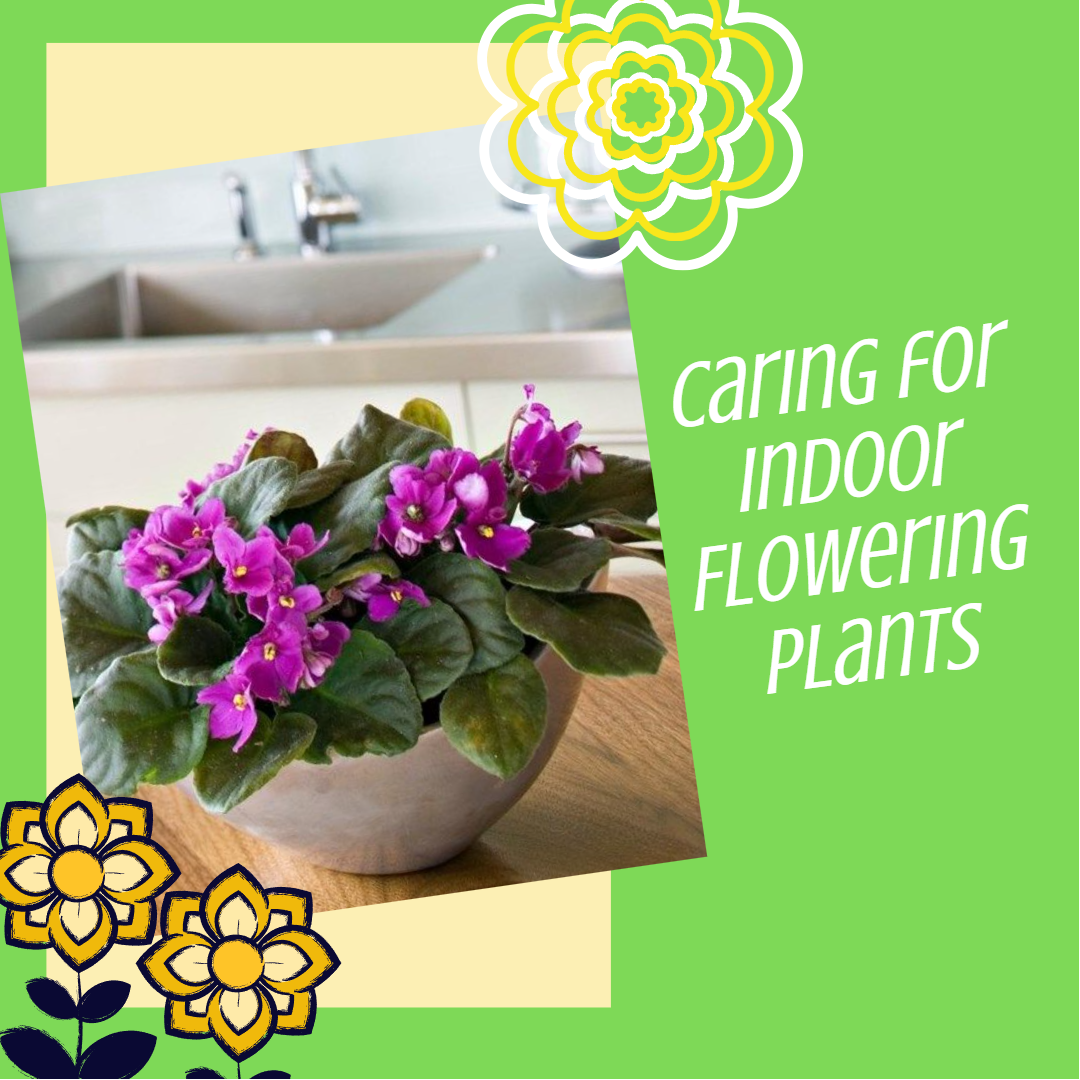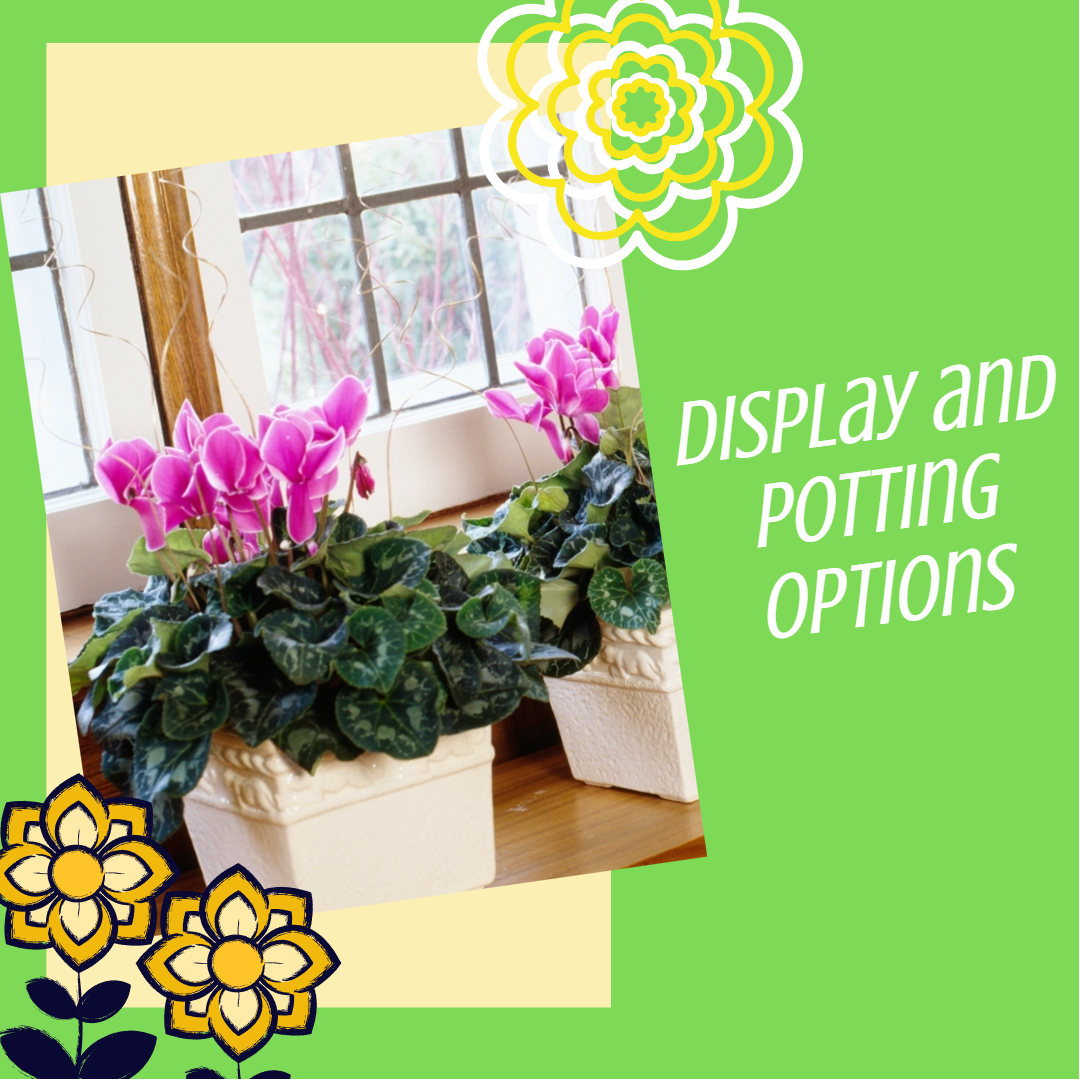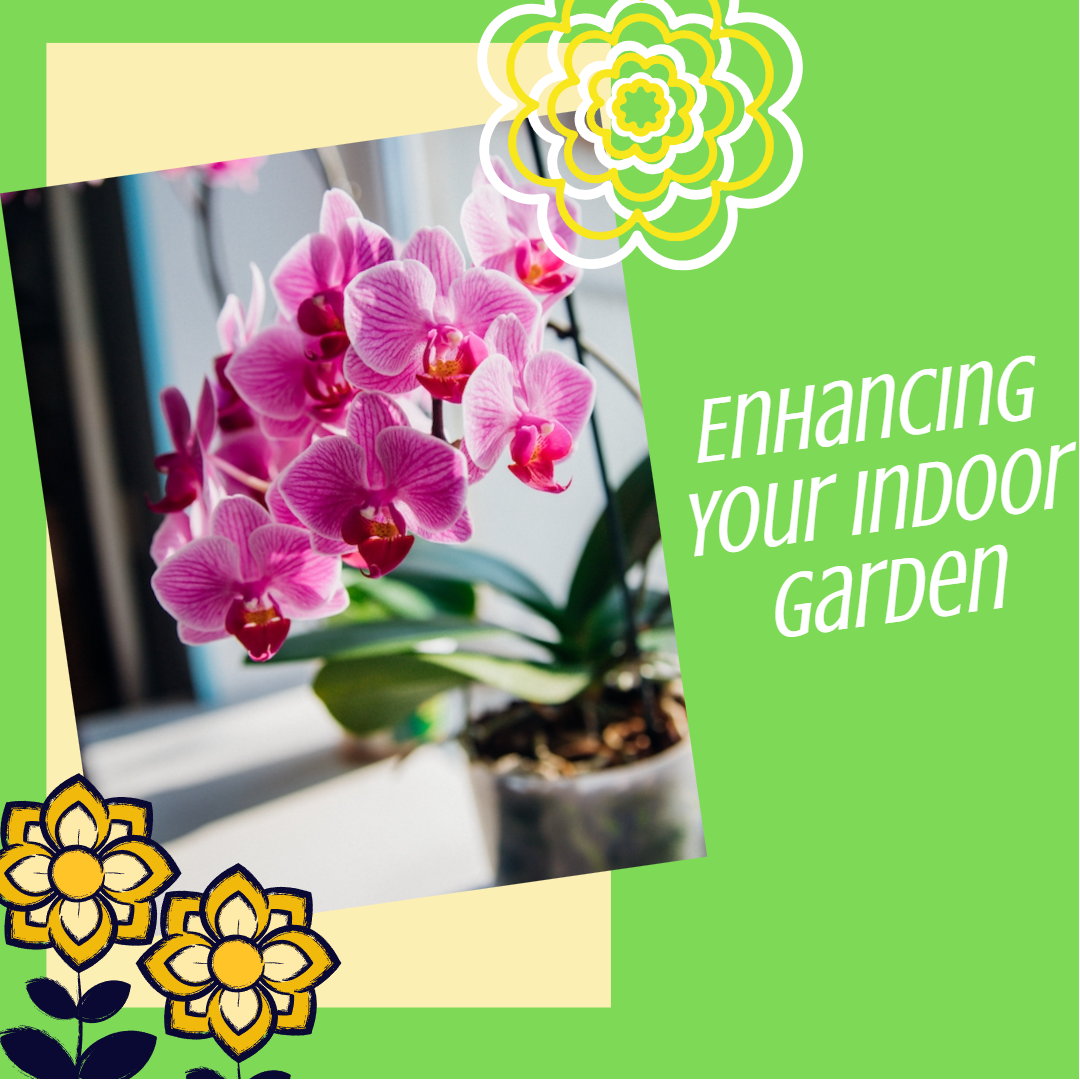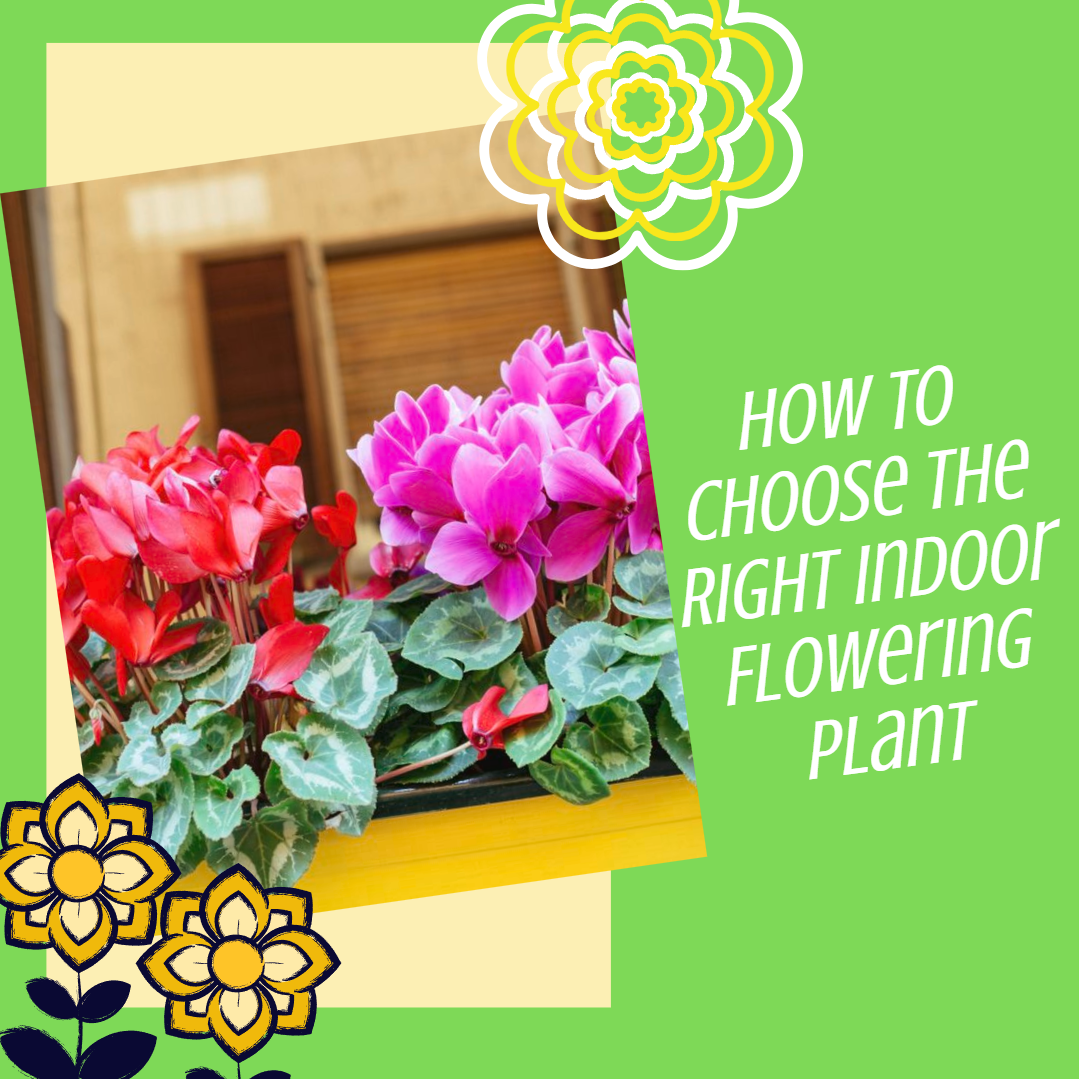HousePlantJoy is supported by our audience. When you purchase through one of our links, we may earn a small affiliate commission. As an Amazon Associate I earn from qualifying purchases. Your cost is not affected.
==================
As an avid gardener and plant enthusiast, I’ve always been fascinated by the world of indoor flowering plants. These beauties add aesthetic value to our homes and provide a sense of tranquility and peace. The diversity and charm of these plants can truly turn your living space into a vibrant haven.
The idea of indoor gardening is not new. For centuries, people have been cultivating indoor flowering plants, turning corners of their homes into miniature gardens. Today, the trend of indoor gardening has reached new heights, with more and more people embracing the joy of nurturing indoor flowering plants.
Whether you’re a seasoned gardener looking to expand your indoor plant collection or a beginner who’s just starting, indoor flowering plants are a great choice. They offer an array of colours, textures, and fragrances to brighten up your space. So, let’s delve deeper into this enchanting world and discover the beauty and benefits of indoor flowering plants!
The Beauty of Indoor Flowering Plants:
Why Choose Them?
Indoor flowering plants are more than just decorative elements. They are a source of joy, a stress reliever, and a breath of fresh air! Their vibrant colors and pleasant fragrances can instantly lift your mood, making your home feel like a tropical paradise.
Moreover, indoor flowering plants are known for their air-purifying properties. Many can effectively filter out harmful toxins in the air, contributing to a healthier living environment. They also help maintain humidity levels, which can be particularly beneficial during dry winter months.
The versatility of indoor flowering plants is another reason to love them. Whether you’re looking for a tall, dramatic plant to make a statement or a small, delicate one to add a touch of elegance, there’s an indoor flowering plant for every preference and space. And the best part? Many are easy to care for, making them perfect for busy homeowners and gardening novices.
Credits: Real Simple
The Benefits of Having Indoor Flowering Plants
The benefits of having indoor flowering plants extend beyond their aesthetic appeal. Firstly, they contribute to better air quality. Studies have shown that certain indoor flowering plants can remove harmful air pollutants, helping reduce the risk of illnesses like asthma and allergies.
Secondly, indoor flowering plants can enhance your mental well-being. Caring for a living thing provides a sense of satisfaction and accomplishment. Plus, greenery and flowers can reduce stress, improve concentration and boost mood. I can’t tell you how often I’ve found solace in my indoor garden after a hectic day!
Lastly, indoor flowering plants can add life to your interior décor. With their variety of shapes, sizes, and colors, they can complement any design style. Whether you’re aiming for a minimalist look or an eclectic mix, there’s an indoor flowering plant that can perfectly fit your aesthetic.
Understanding Indoor Flowering Plants:
Types and Varieties
Indoor flowering plants come in a plethora of types and varieties. Some are foliage plants that bloom sporadically, while others are perennial bloomers. Some prefer bright, indirect light, while others can thrive in low-light conditions. Understanding these differences is critical to successful indoor gardening.
For instance, African violets are popular indoor flowering plants known for their beautiful, velvety flowers. They prefer bright, indirect light and high humidity. On the other hand, peace lilies are low-light lovers that produce elegant white flowers. Then there are succulents like Christmas cacti, known for their stunning, vibrant blooms.
Another variety to consider is the begonia. With over 1,800 species, begonias offer various colors, shapes, and sizes. There are also numerous varieties of orchids, each with its unique flowering pattern and care requirements. The key is to choose plants that match your care capacity and the conditions of your home.
Tips for Beginners
If you’re starting your adventure as a plant parent, it’s a lot like learning to ride a bike with training wheels. You’re finding balance in the plant world, and that’s okay. The best way to begin is with plants like your training wheels – they’re the perfect starting point for budding green thumbs.
These plants are super chill, just like that teacher who makes learning fun. They’re forgiving, so if you forget to water them sometimes or place them in not-so-great spots, they’ll still be happy. Think of them as your friendly plant mentors, here to guide you and help you grow into an excellent plant parent.
List of the Best Indoor Flowering Plants
When it comes to indoor flowering plants, the options are endless. However, some stand out for their beauty, resilience, and ease of care. Here’s my curated list of the best indoor flowering plants:
African Violets: These plants are great for beginners and are known for their vibrant, velvet-like flowers.
Peace Lilies: Their elegant white flowers and low-light tolerance make them a popular choice for indoor gardens.
Christmas Cacti: These succulents produce stunning, colorful flowers around the holiday season.
Begonias: With their wide range of colors and shapes, begonias can add a touch of elegance to any space.
Orchids: Though they require a bit more care, orchids can reward you with exotic, breathtaking blooms.
Caring for Indoor Flowering Plants:
Tips and Tricks
Caring for indoor flowering plants can be a rewarding experience. With a bit of attention and understanding, you can help your plants thrive. The first step is to provide the right light conditions. Most indoor flowering plants prefer bright, indirect light. However, some can tolerate lower light levels.
Watering is another crucial aspect. Overwatering is a common mistake that can lead to root rot, a fatal condition for most plants. It’s best to water when the top inch of soil feels dry to the touch. Furthermore, consider the humidity requirements of your plants. Some indoor flowering plants prefer higher humidity levels, like African violets and orchids.
Lastly, remember to feed your plants. Most indoor flowering plants benefit from regular fertilization during their growing season. However, be careful not to overdo it, as excessive fertilization can harm your plants.
Check out these lovely flower pots that we absolutely adore, especially if you’re as passionate about flowering plants as we are! ?? #GardeningDelights #PlantLovers
Light and Temperature Requirements
for Indoor Flowering Plants
Plants are like sun-worshippers or shade-lovers, each with their quirks. Some thrive in bright, indirect light, while others prefer a cozy corner away from direct sunlight. It’s like understanding your friend’s sunbathing preferences at the beach.
Light
Just like our sunbathing preferences at the beach, plants have their own. Some like it bright but not direct, like finding that perfect shaded spot where you can enjoy the sun without getting roasted. Others are like sun worshipers and want full sunlight, just like those friends who can’t get enough of soaking up the rays.
So, check your plant’s light preferences and ensure they’re in your home’s right spotto. It’s like finding the perfect beach chair for your friends – only, in this case, it’s for your green buddies.
Temperature
Plants are like Goldilocks; they want it just right. Some like it a bit cooler, around 65-75°F (18-24°C), similar to those who prefer a cool breeze by the ocean. Others are tropical, loving it warm, around 70-80°F (21-27°C), like folks who bask in the beach warmth.
To keep your indoor garden happy, ensure they’re in a space where the temperature matches their needs. It’s like making sure your friends are comfy, whether they like a breeze or a warm embrace.
Display and Potting Options
Think of it as your design project. Start with pots – they’re like the fashion statement for your plants. Choose one that matches your plant’s personality, just like picking the right shoes for your outfit.
Now, it’s time to play with the arrangement. This is like arranging furniture in your living room. Want a jungle vibe? Group different plants together. Prefer a minimalist look? Let one stunning plant stand alone.
And don’t forget the little extras – think of them as your room decor. Add decorative stones, figurines, or a bit of magic with fairy lights. It’s your space and all about your style and creativity. Remember, you’re not just a plant parent; you’re the designer of your leafy haven.
Easy-Care Indoor Flowering Plants for Beginners
If you’re new to the world of indoor gardening, you might be looking for plants that are easy to care for. Luckily, numerous indoor flowering plants areThei perfect for beginners. Peace lilies, for instance, are known for their hardiness and low-light tolerance. Similarly, African violets are relatively easy to care for, provided they get ample indirect light and humidity.
Christmas cacti are another excellent choice. They are drought-tolerant and only require watering when the top layer of soil is dry. Plus, their spectacular blooms can brighten up your space during the holiday season.
Best Flowering Indoor Plants for Small Spaces
If you’re working with a small space, please don’t worry there is plenty. Plenty of indoor flowering plants are plants eas. Don’t worry; they are plants. Please compact and perfect for small spaces. Begonias are an ideal choice with their compact growth habit and stunning foliage. African violets are another small-sized plant that can add color to your space.
For those who prefer trailing plants, consider the goldfish plant. Its orange, goldfish-shaped flowers, and trailing growth habit make it perfect for hanging baskets or shelves. Another great option is the peace lily. Though it can grow quite large, there are dwarf varieties available that are perfect for small spaces.
Making a Statement: Large Indoor Flowering Plants
For those with ample space and a love for large, dramatic plants, consider adding some large indoor flowering plants to your collection. One of my favorites is the bird of paradise. It’s a true showstopper with its large, glossy leaves and exotic flowers.
Another great option is the hibiscus. This plant can grow quite large and produces stunning tropical flowers. However, it does require a bit more care and plenty of light.
Rubber plants are another great choice. Though primarily grown for their foliage, they can produce small, inconspicuous flowers under the right conditions.
Enhancing Your Indoor Garden:
Good Indoor Flowering Plants
An excellent indoor flowering plant suits your lifestyle, matches your aesthetic, and thrives in the conditions of your home. A perfect indoor flowering plant is adaptable, resilient, and beautiful. Plants like African violets, peace lilies, and begonias fall into this category. They are versatile and relatively easy to care for, and their blooms can add colour to any space.
How to Choose the Right Indoor
Flowering Plant for Your Space
Choosing the right indoor flowering plant for your space involves considering several factors. First, please consider the light conditions of your space. Some plants require bright, indirect light, while others tolerate low-light conditions.
Next, think about the size of the plant. Do you have space for a large, dramatic plant, or would a compact plant be more suitable? Also, consider the care requirements of the plant. If you’re a busy person or a beginner gardener, opt for plants that are easy to care for.
Seasonal Considerations for
Indoor Flowering Plants
Plants have their internal calendar. Some bloom in winter, others in spring, and a few in the summer. Understanding these cycles and adjusting your care routine is like hosting a year-round garden party. It keeps the floral show going.
Troubleshooting Common Issues
Plants can have their ‘off’ days, just like we do. You might notice their leaves turning yellow, or they’re not growing as they should, or sneaky pests have invaded their space. But don’t worry, you can be the plant detective and figure out what’s happening. Yellow leaves could mean they’re thirsty, overwatered, or need a new spot with better light.
If your plant seems to be on a growth strike, it’s time for a bigger pot or an adjustment in its care routine. And pests? They’re like the uninvited guests at a party – identify them and kick them out with some plant-friendly solutions. With your help, your plants will return to their vibrant, pest-free, and happy selves in no time.
Again, take a peek at these charming flower pots that have captured our hearts. If you share our passion for blooming plants, you’re in for a delightful treat! ?? #BloomsAndBlossoms #PlantEnthusiasts
The Joy of Indoor Flowering Plants
To conclude, indoor flowering plants are an excellent addition to any home. They bring a touch of the outdoors, enhancing our living spaces’ beautyan indoor flowering plant is and vitality. Whether you’re a seasoned gardener or a beginner, there’s an indoor flowering plant waiting to be discovered and loved by you. Happy gardening!
FAQs
How often should I water my flowering plants?
The frequency of watering varies based on the plant type, room temperature, and potting mix. Generally, it’s best to water when the top inch of soil feels dry. Avoid overwatering, as it can harm the plant’s roots.
What kind of light do indoor flowering plants need?
Light preferences vary among plants. Some thrive in bright, indirect light, while others require more direct sunlight. Be sure to match your plant’s light needs with the available conditions in your home.
Can I use any pot for my indoor flowering plants?
While you have some flexibility, it’s essential to choose pots with drainage holes to prevent overwatering. Additionally, consider the pot’s size to allow for proper root growth.
How can I keep pests away from my indoor plants?
Regularly inspect your plants for signs of pests like aphids or mealybugs. If you spot them, isolate the affected plant and treat it with insecticidal soap or neem oil. Maintaining good plant hygiene and not overwatering can also help prevent pest infestations.
What's the ideal humidity level for indoor flowering plants?
Most indoor plants prefer a humidity level of around 40-60%. You can increase humidity by misting your plants, using a humidity tray, or placing a humidifier nearby, especially during dry seasons.
How can I encourage continuous blooms in my indoor flowering plants?
To keep your plants blooming, deadhead faded flowers and provide appropriate care regarding light, temperature, watering, and fertilization. Each plant may have specific requirements, so research your plant’s needs to ensure continuous blooms.
? Brighten Your Home with Indoor Flowering Plants! ?
If you want to liven up your space, our indoor flowering plants are the answer. Whether you’re a plant pro or just starting out, we have the perfect blooms to make your home feel fresh and inviting.
? Why Choose Our Indoor Flowering Plants? They bring beauty to your home all year long, like a never-ending springtime. Plus, these plants aren’t just pretty – they clean the air and reduce stress. And here’s the best part: they’re easy to care for — no green thumb required. With a wide variety of options, you can pick the one that suits your style. We’ve got your back with expert advice to make sure your plants thrive.
Follow our socials:
Revitalize your space with indoor flowering plants and create a peaceful, colorful atmosphere in your home. Don’t wait – order today and let these blooms bring life and tranquility to your world! ??

